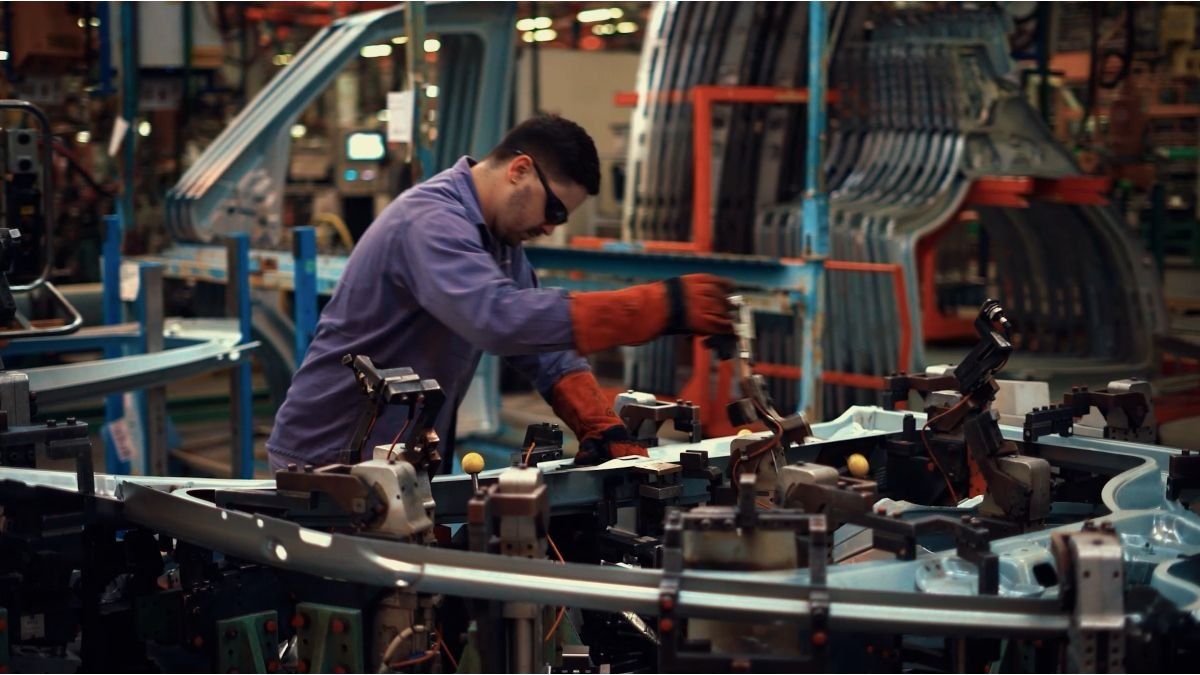In the case of the province of Buenos Airesthe situation is complex, and despite a rebound compared to 2024, the loss of employment continued in the first half, with a decrease of more than 12,000 jobsAccording to a recent report by the Industrial Union of the Province of Buenos Aires (UIPBA).
Strictly speaking, it is a productive network oriented towards consumption, generally far from Vaca Muerta or the mining provinces, beyond firms that did manage to consolidate themselves as suppliers of that economic engine. Many companies are also SMEs, with greater difficulties in sustaining themselves in the midst of the financial turbulence of recent times.
In that context, from the UIPBA they prepare a tax reform to present shortly to provincial government of Axel Kicillofaimed at improving the competitiveness of the sector, since they understand that Gross Income (IIBB) is a distorting tax that is transferred to the entire production chain and it means that Argentine products arrive at a disadvantage in the fight with imported ones. The IIBB problem is not only in Buenos Aires, but it affects all provinces. “A product that is made in more than one district carries IIBB from each of the provinces it passes through, it is crazy,” explained an important Buenos Aires industrialist this week at a work table held in the Federal Capital. The complaint is not only directed at the province, it also points to the municipalities (“there are some who have seven fees for services they do not provide”) and Nation. In the latter case, not only due to the tax burden but also due to a series of macro conditions, fundamentally the exchange rate policy and opening to imports without first contemplating a tax reform.
“Milei told us that he was going to take our backpack to compete. But he opened the cage to the lions and we have a backpack that is even heavier”graphed another businessman based in the UIPBA. Specifically, they understand that competition with imported products is unequal, firstly due to taxes on production at the three levels of the State (national, provincial and municipal), but also due to environmental or even labor requirements. “A company here has to comply with certain standards, but then comes a product from Asia with labor in almost slave-like conditions or that does not contemplate any of the environmental standards that are required of us,” mentioned the same businessman, for whom there is a kind of “hypocrisy” regarding parameters that are not contemplated “if the price is logically cheaper than the imported one.” The most famous cases are the products that arrive from Chinese e-commerce platforms, and in this regard the Argentine Clothing Chamber is preparing an “anti Shein” law. But it also covers machinery, cars, marketing signs and an infinite etcetera.
“Let’s pretend we disappear”
The folder that prepares the UIPBA It focuses on provincial competitions, especially IIBB. And he rides on it “industricide” that Kicillof usually denounces regarding the policies applied by Milei. “Okay, let’s pretend that we disappear. The State is going to have to collect what we contribute today, let’s see that,” said the industrialists, with a hint of irony.
It is that one of the paradoxes that companies from all over the country postulate is that The provinces argue that they are not in a position to exempt IIBB because they depend on that collection to cover current expenses, especially in times of chainsaw and drop in shipments from the Nation. “But with this tax burden we cannot compete, we do not sell and therefore the provincial State collects less for IIBB. It even stops collecting for each company that closes. Therefore, if the ‘industricide’ continues, the province will be left without cash,” they expressed.
Today Most of the items have 1.5% but in effective terms it is around 3%. Some items, such as textiles, start at 3% and alcoholic beverages at 5%. In effective terms those numbers grow. Likewise, since La Plata failed to approve the Budget and Tax laws, the amounts were not updated and more small companies began to pay taxes. For the Kicillof government, IIBB represents about 75% of its own revenue.
Under this thesis, the chamber that brings together Buenos Aires industries seeks that IIBB becomes a kind of VATand that impacts not the industrial process, but at the end of the chain. That is, in the consumer. It would not be an increase in the final price, but rather a tax transfer from the intermediate links to the last. In addition, this tax should also impact imported products. Goodbye to Shein “bargains”?
How this tax would be applied is still a matter of discussion, but they do not rule out that it could be through credit cards for imported goods, for example. The idea aims to generate equal conditions in the local market and that the provinces (in this case Buenos Aires) stop exporting taxes. In this last scenario, one case is the automotive industry, where terminals compete with others of the same brand to place their products in each market. Argentina exports around 20% taxes, Brazil 7% and Mexico 0%, to compare with the two main car producers in the region. At the level of SMEs, there are many cases of firms that have withholdings from provinces through which they do not operate, with pending returns for the last two years.
Buenos Aires industrialists believe that, ultimately, they subsidize the 0% tax on imported goodsand also special regimes in other districts of the country. They also observe a situation similar to that of the nineties, but with the aggravating factor of the Chinese presence. “The cost of services in dollars has quadrupled, and everyone adds a percentage of fees and taxes. It is very difficult,” they said.
As reported this week by the National Institute of Statistics and Censuses (INDEC), between January and August the indicator accumulates a drop of 3.5% and still operates 3.9% below the level of November 2023. Of the sixteen divisions of the manufacturing industry, fifteen presented year-on-year (yoy) falls, among which Metal Products (-18%) stand out; Food and beverages (-2.3%); Clothing, leather and footwear (-14.1%) and Machinery and equipment (-8.9%), taking into account the incidence at a general level. The exception was oil and coke refining and nuclear fuel (+4.9%).
Source: Ambito




